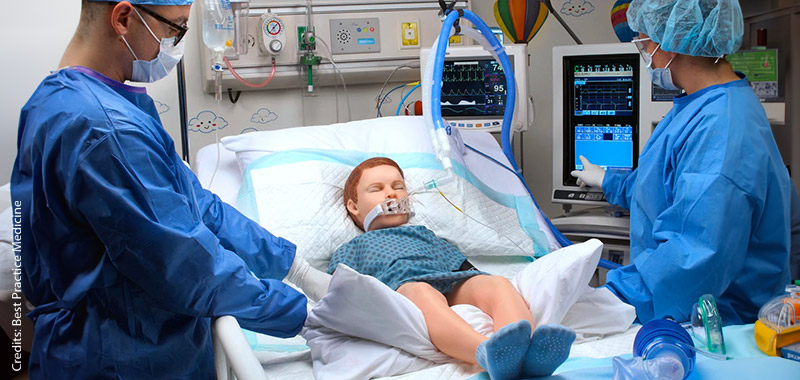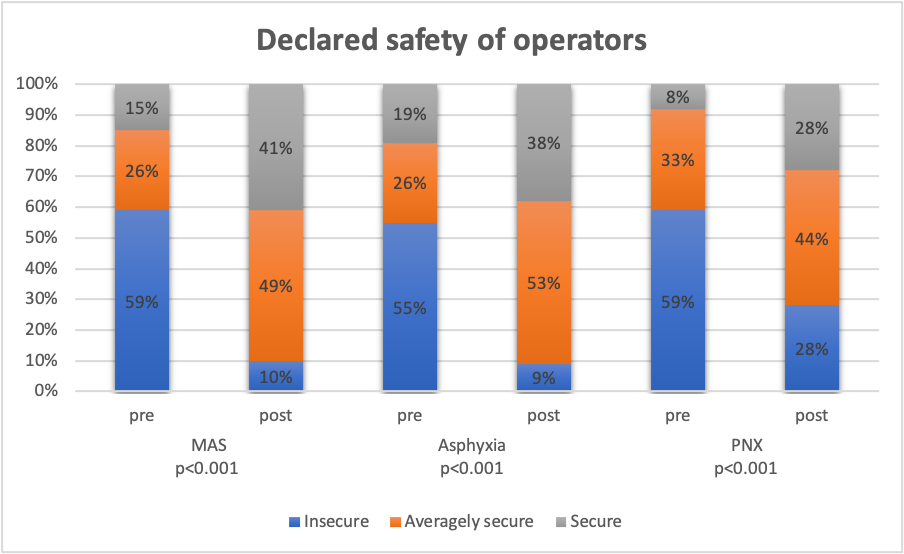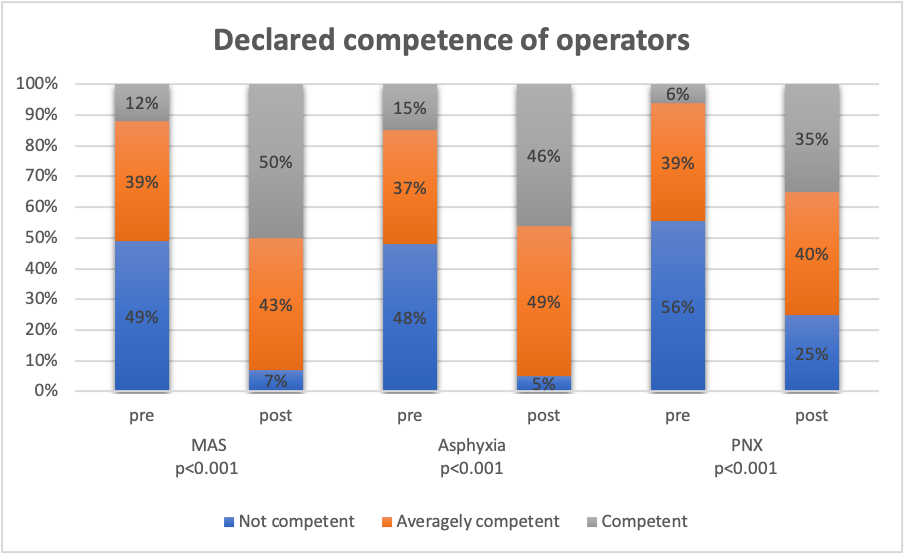
Introduction
The delivery room is a high-risk environment for patients. Its effects on the professionals working there should not be underestimated. In aviation, periodically repeated mandatory training and simulation helps to increase the safety of passengers and crew.
In medicine, high-fidelity simulation enables realistic training at a high level, which can increase not only patient safety but also operator safety.
Aim of the study
To evaluate the effects of high-fidelity simulation on the safety and competence of personnel involved in the management of the newborn in the delivery room.
Materials and methods
From 01/2013 to 12/2014 the ‘safe delivery room’ project was implemented throughout the Province of Bozen/Bolzano. In addition to a series of measures such as the drafting of standard operating procedures (SOPs) for neonatal emergencies and the introduction of the same emergency trolley for all 7 birth centers, advanced simulation in obstetrics and neonatology was introduced as a compulsory training course for all operators.
In 2015, a pre-post questionnaire administered to 55 participants assessed the impact this type of training has on the operator’s safety and competence in handling complex scenarios.
Results
Whereas before the course 49% of the operators do not feel competent in the management of the neonate with meconium aspiration (MAS), after the course this percentage drops to 7% (p<0.001). In the management of the neonate with perinatal asphyxia the percentage drops from 48% to 5% (p<0.001), in the case of pneumothorax (PNX) from 56% to 25% (p<0.001).
The insecurity in the management of the newborn with meconium aspiration decreases from 59% to 10% (p<0.001), in perinatal asphyxia from 55% to 9% (p<0.001). In pneumothorax this percentage improves from 59% to 28% (p<0.001).
Conclusion
High-fidelity simulation in the Province of Bolzano significantly increases the practitioner’s perception of safety and competence in the management of complex cases in the delivery room.
Written by A. Staffler, S. Girardi, F. Vittadello, H. Messner





